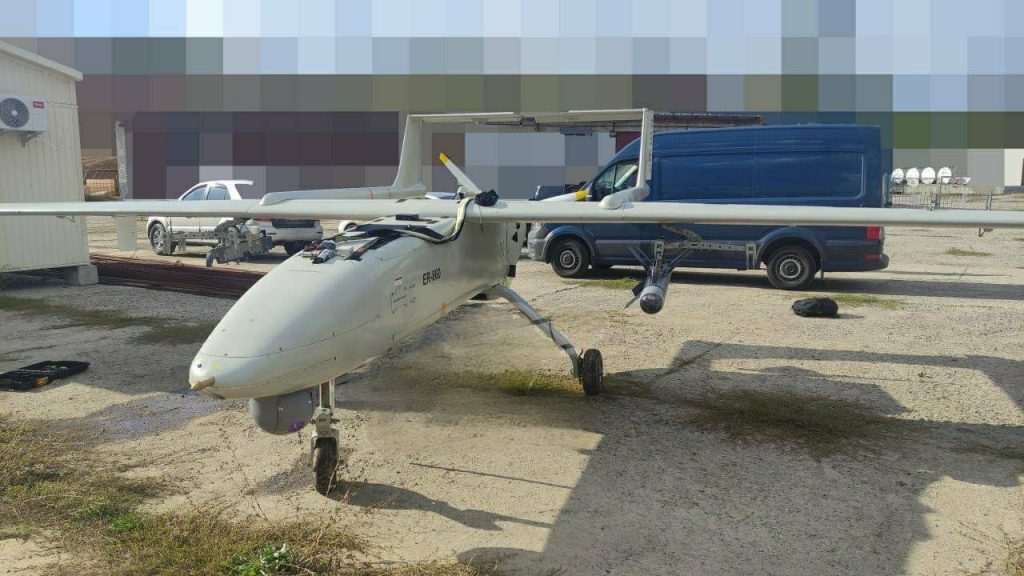FRESH AIR
Western Silence on Iran’s Material Support for Russia is Deafening
October 4, 2022 | Oved Lobel

On July 14, three days after US National Security Advisor Jake Sullivan publicised intelligence that Russia was planning to procure hundreds of Iranian drones for use against Ukraine, I warned that “far more severe sanctions must be imposed by Europe and the US on Iran as soon as any Iranian drones appear in Ukraine.”
Since at least August 19, those drones have been in use on the battlefield, visually documented to include swarms of Iran’s Shahed-136 “suicide drones”, dubbed Geranium-2 by the Russians, as well as the Mohajer-6, with Iran’s Shahed-129s and Shahed-191s also reportedly either in Russia’s possession or soon to be acquired. Despite Ukrainian successes in shooting them down or jamming them, these have inflicted battlefield losses and been used by Russia to terrorise civilians and attack infrastructure in urban areas. Russian cargo flights continue flying to Iran to pick up more of these drones, and Ukraine is downgrading diplomatic relations with Iran in response.
The reaction by the Europeans and other US allies, including Australia and Israel, has been… nothing. Not a single statement of condemnation for the only country – other than Russia’s client state Belarus, the territory of which has been used to conduct the invasion and missile attacks against Ukrainian cities – to materially join Russia’s invasion of Ukraine, much less sanctions. The United States, at least, was willing to not only reveal the Russo-Iranian plan months in advance and condemn the activity once it began, but to levy sanctions against multiple drone producers and Iran’s Safiran Airport Services, which coordinated delivery.
The silence elsewhere is deafening and inexplicable. Israel, to its possible credit, allegedly allowed the transfer of counter-drone systems to Ukraine via Poland and shared a small amount of intelligence with Ukraine on Iran’s military aid to Russia, although this remains unverified. However, despite constantly warning about various aspects of the Iranian threat in the Middle East, Israel has remained resolutely silent on Iran’s substantial support for Russia’s invasion of Ukraine.
The lack of a European response of any kind to Iran’s material involvement in a war that existentially concerns the continent is even more distressing, if less surprising. Iran has been able to assassinate dissidents and plan and execute terrorist attacks on the continent, as well as seize European hostages and hijack European vessels, with impunity for decades. It is only due to Mossad tip-offs that attacks have been foiled and explosives caches uncovered. That the European Union can’t draw up even token sanctions in response, or even publicly and loudly condemn the Iranian provision of drones to Russia for use in Ukraine, speaks volumes about its ability, or lack thereof, to act on the global stage.
As for Australia, it would cost little to harshly condemn Iran’s material support for the Russian invasion and even impose its own sanctions, not only for Iran’s horrific human rights abuses domestically and its regional destabilisation and terrorism, but for its aid to Russia, as well. The silence is all the more notable given that Australia recently publicly condemned the Iranian regime for its domestic brutality and has in the past condemned its terrorism sponsorship.
The fact that terrorism, hostage-taking and mass murder at home and abroad do not seem to impact diplomatic relations between Western countries and Iran or engender any response of relevance is extremely troubling; the fact that Iran can aid Russia’s invasion of Ukraine without so much as a condemnation from a single country outside the US, even worse.
Moreover, none of these activities seem to have dampened Western desperation to revive the nuclear deal with Iran, despite the fact that the sanctions relief inherent in a return to the deal would both directly and indirectly enable the Russo-Iranian alliance. This is why Ukraine reportedly opposes lifting sanctions regardless of whether a deal is signed.
Nobody seems willing to respond seriously to global Iranian aggression, especially its active participation in the most serious challenge to international order in decades, even when Tehran is economically weakened, its terrorism apparatus degraded and, most importantly, doesn’t have a nuclear weapon. Imagine what the world will be like when it does.
RELATED ARTICLES

‘Time’s up for talk’: Joel Burnie discusses Antisemitism Envoy’s report on Sky News

‘Optimism’ for Hamas to ‘exile’ their power and create a permanent ceasefire with Israel: Joel Burnie on Sky News

Australian government’s response to Iran-Israel conflict ‘disappointing’: Paul Rubenstein on Sky News




















